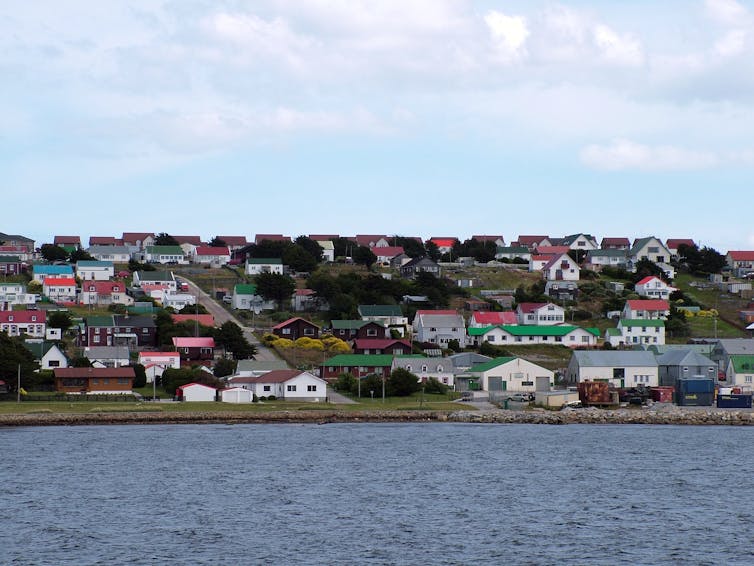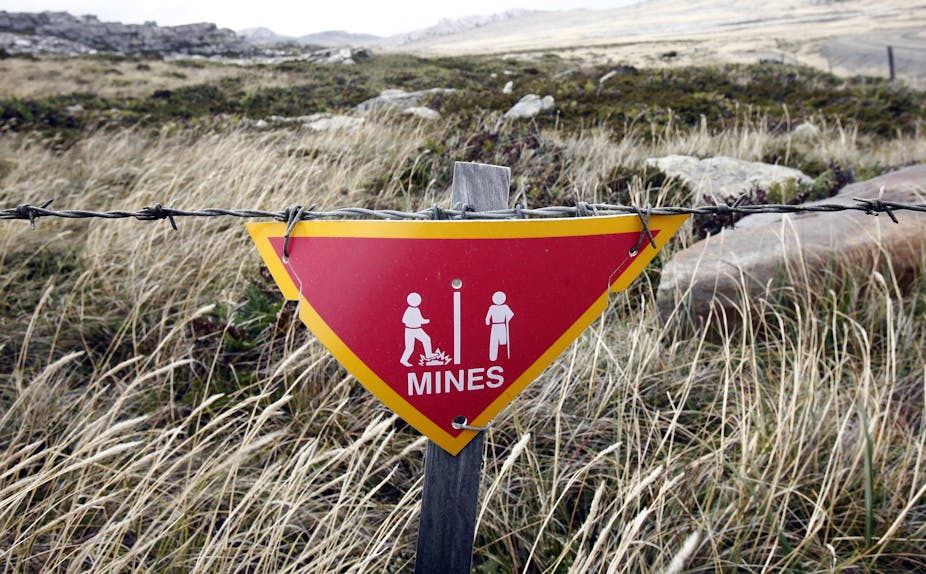History is about to be made on the Falkland Islands, which holds its first official sovereignty referendum this weekend. Some 1,600 Islanders will be asked whether they wish to retain their current political status as a British Overseas Territory, and the result is already a foregone conclusion.
The Islands have been under British control since 1833, save for a 74-day occupation by Argentina in 1982, but are now self-governing except for defence and foreign affairs. Argentina claims the Falklands as an inseparable part of its national territory, and rejects the Islanders’ insistence on the right to self-determination. In the event of a “No” vote, the Falklands government has indicated that a further referendum will be held on “alternative options”, but such a scenario is nigh impossible.
An unofficial referendum was previously held in 1986, when 94.5% of “Kelpers” voted in favour of British sovereignty. Islanders remain fiercely proud of their British roots, it is often said that they feel more British than Britain, and the outcome next week is unlikely to be any less one-sided.
Plans for the referendum were announced by the Falklands government last June, shortly after Argentina broadcasted a provocative Olympics commercial which had been secretly filmed on the Islands.
The rationale for the referendum is straightforward. Gavin Short, chairman of the Falklands legislative assembly, said:
“We have thought carefully about how to convey a strong message to the outside world that expresses the views of the Falklands people in a clear, democratic and incontestable way. So we have decided, with the full support of the British government, to hold a referendum to eliminate any possible doubt about our wishes.”
Since then Argentina has gone on the diplomatic offensive and the referendum will take place amid a backdrop of acrimony and squabbling. Argentine president Cristina Fernández de Kirchner brought in the New Year by publishing an open letter addressed to British prime minister David Cameron, which appeared in two newspapers and called for the return to sovereignty negotiations. The next day British newspaper The Sun responded by placing an advert in the English-language Buenos Aires Herald, defending British sovereignty and telling president Fernandez and Argentina to keep their “hands off” the Islands. A group of Argentines subsequently took to the streets in Buenos Aires, burning Union Jacks and newspapers.

The past few weeks have been similarly bitter. Argentine foreign minister Héctor Timerman visited London last month for the first time, but his trip was an unfulfilling one. He turned down the offer of a meeting with his opposite number William Hague after the latter insisted that talks would not begin without the presence of Islander representatives. Timerman’s response was to invoke United Nations resolutions and remind Hague that the dispute was a bilateral one. As if to labour the point, he told reporters at a press conference:
“The United Nations does not recognise a third party in the conflict. It says there are just two parts – the UK and Argentina […] The Falkland Islanders do not exist. What exist are British citizens who live in the Islas Malvinas.”
Argentina’s battle to win the hearts and minds of Islanders, the lynchpin of its policy in the early 1970s, has long since ceased. Timerman’s remarks have further inflamed anti-Argentine opinion ahead of the referendum, something he has already dismissed as meaningless. The Argentine foreign minister told British newspapers that he expects the Falklands to be under Argentine control within 20 years, but few believe him.
For its part, the British government has received no backing from its closest ally. The Obama administration has been studiously neutral in its approach to the dispute. Newly-appointed secretary of state John Kerry visited William Hague on February 25, and explained to the press afterwards:
“Our position on the Falklands has not changed. The United States recognises de facto UK administration of the Islands, but takes no position on the question of the parties’ sovereignty claims […] and we continue to urge a peaceful resolution.”
British press opinion was critical of Kerry’s refusal to comment on the upcoming referendum. But the simple reality is that Washington has adopted a stance identical to a succession of American administrations, which have always regarded the Falklands as an embarrassing thorn in the “special relationship”.
The Islands have undoubtedly become more self-sufficient over the past 30 years, yet they remain a curious anomaly; 8,000 miles from their “motherland” and with sheep outnumbering people by a ratio of 167:1. Meanwhile, recent oil exploration, another source of Anglo-Argentine friction, has again produced disappointing results.
Yet every British premier post-1968 has recognised the toxic nature of the sovereignty issue in Parliament, where the Falklands lobby boasts powerful support with cross-party representation. Cameron has been unequivocal in backing the Islanders’ right to decide their own fate. A nuclear-powered submarine was dispatched to the South Atlantic last June to coincide with the 30th anniversary of the war. In a dispute where symbolism reigns, he was demonstrating British commitment to the Islands’ security, which has been called into question following large-scale defence cuts.
Cameron has said that the referendum “will determine beyond doubt the views of the people of the Falklands”, and that Britain would respect its outcome. That is not in question. But his hope that the Argentine government will do likewise rings hollow.
The late Argentine writer Jorge Luis Borges famously quipped that the Falklands War was like “a fight between two bald men over a comb”. Neither Timerman nor Hague is blessed with a lush mane, and though nobody expects military conflict, the two foreign ministers are not backing down in the war of words.
The referendum which begins on Sunday is historic but will change very little. Once the inevitable is confirmed, the game continues. Pressure on Britain to open talks will be applied at the United Nations and beyond. More flags will be burned and the odd commercial may still appear. In 2002 a referendum was held in Gibraltar, where the idea of sharing sovereignty between Britain and Spain was rejected by 98.5% of residents. Expect a similar outcome in Stanley early next week.

